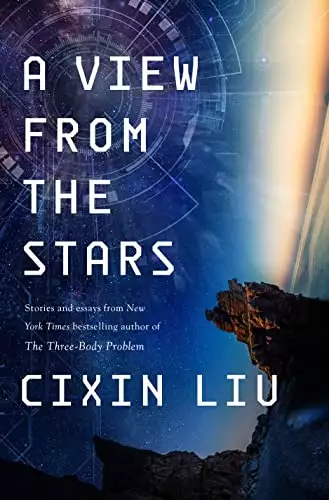“We’re Sci-Fi Fans”
We’re mysterious aliens in the crowd. We jump like fleas from future to past and back again, and float like clouds of gas between nebulae; in a flash, we can reach the edge of the universe, or tunnel into a quark, or swim within a star-core . . . We’re now as weak and unassuming as fireflies, yet our numbers are growing like grass in spring.
Chinese sci-fi has peaked twice, once in the 1950s and again in the eighties. But no clear boundary then existed between sci-fi and main- stream literature, so no legitimate fan base formed around the genre. After sci-fi came under siege in China in the eighties,* it was abandoned by science and literature alike and left for dead. Then, in an incredible turn, a sci-fi fan base quietly emerged in China. We gave shelter to that half-dead outcast and kept it alive. It went on to sever its umbilical cord to literature and science, establishing an independent identity for itself. This happened in the early nineties, when sci-fi fans were still few and far between.
The third bloom of Chinese sci-fi is currently underway, and though our fan base has expanded dramatically, we’re still much smaller than other, comparable communities. Science Fiction World, which most of us read, sells between four and five hundred thousand copies each month, which are read by somewhere between one and fifteen million people. Excluding casual readers, we can put the total number of sci-fi fans in China somewhere in the range of five to eight hundred thousand people. This figure includes its share of senior citizens, but secondary school and university students make up its vast majority.
We scrupulously follow the Chinese sci-fi endeavor and hope for it to thrive and achieve liftoff. Many of us read each new story as soon as it’s published, regardless of its quality, as if we were duty-bound to do so. Such a phenomenon is rare for other forms of literature. In this regard, we’re a lot like China’s soccer fans—except they seldom kick a ball themselves, whereas most sci-fi fans, at a certain point, feel com- pelled to write stories of their own. Very few of us are lucky enough to have our work published; we post most of our stuff online. In dim internet cafés, we type word after word of our very own works of sci-fi, some of which are as long as War and Peace. We’re the bards errant of the electronic era.
But what’s truly essential about our group is this: To us, sci-fi is not merely a genre of literature, but a cohesive world of the spirit—a way of life. We’re an advance party, a team of explorers; we travel ahead of oth- ers to all manner of future worlds, some foreseeable, others far beyond humanity’s potential. We begin with what’s real, and from there, our experience radiates outward to every possibility. We’re a lot like Alice, there at that convoluted fork in the road: She asks the Cheshire Cat which road to take, and he asks her where she wants to go.
I don’t know, she says.
Then it doesn’t matter.
Twenty years before all the hype around cloning technology, we’d already tracked down twenty-four young Adolf Hitlers in the world of sci-fi. Now, the sort of life that interests us exists in the form of force fields and light. And it was as many years before nanotechnol- ogy entered popular consciousness that a nanosubmarine in sci-fi took its fantastic voyage through the veins of the human body. Now, we’re occupied with whether each fundamental particle is its own universe, replete with trillions of galaxies—or whether our universe itself is a fundamental particle. When we’re at a newsstand, deciding whether to spend our five yuan on breakfast or a copy of Science Fiction World, our spirit has gone to a world of infinite abundance, where each household has a planet of its own. When we’re cramming for our final exam, our other self in the spiritual world is on a hundred-billion-light-year expe- dition into the deep end of the universe. The spiritual world of sci-fi fans is not that of scientists, whose feelers stop far short of where we go. Neither is it that of philosophers, whose world is much less vivid and dynamic than ours. And less still is it the world of myth, as everything in the spiritual world of sci-fi fans might someday come to pass—if it hasn’t already, somewhere out there in the far reaches of the universe.
Other people, they don’t care for us aliens. When one of us gradu- ates and enters society, we find ourselves surrounded at once by for- eign gazes. In this increasingly practical world, lovers of fantasy inspire intense loathing in others. We’re forced to hide ourselves deep inside shells of normalcy.
This group of ours may be weak today, but whoever underestimates it is taking their life in their hands. These kids and teenagers are grow- ing up fast. Already, there are Ph.D.s from Beijing and Tsinghua Uni- versities in our midst. More importantly, ours are the most vivacious intellects in society. Ideas that might blow a normal person’s mind are nothing but insipid old clichés to us. No one is better prepared than we for the shocking concepts the future holds. We stand far off in the dis- tance and wait impatiently for the world to catch up—and we’ll create more astonishing things yet, things that will shake the world.
We sci-fi fans are people from the future. ...
We hope you are enjoying the book so far. To continue reading...
Copyright © 2026 All Rights Reserved
